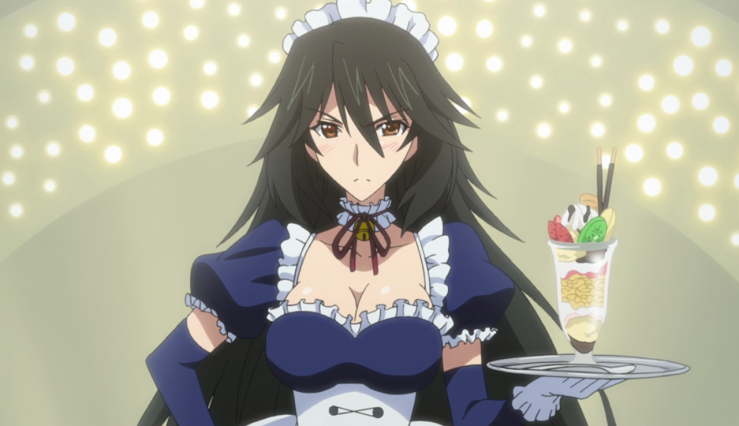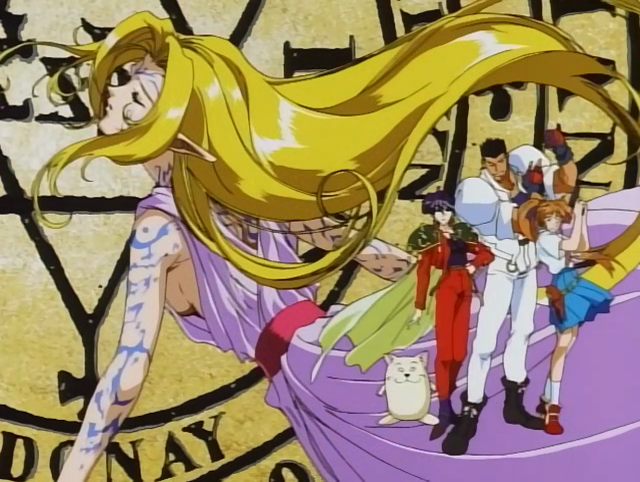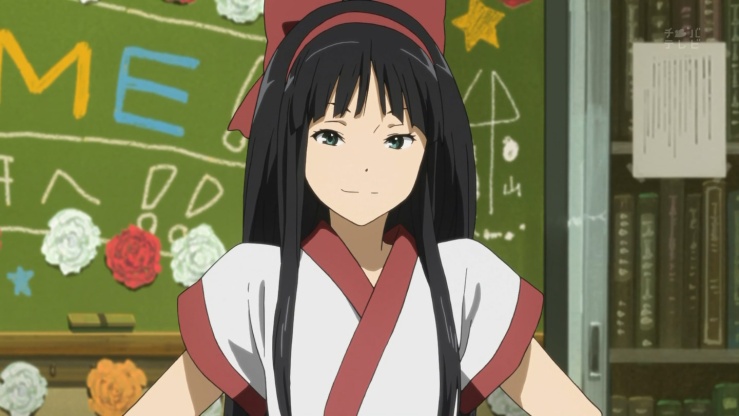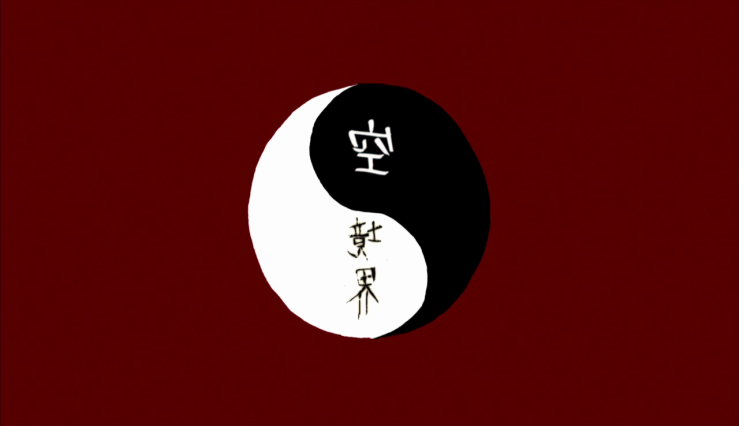
Today is the second day of Christmastide – Saint Stephen’s Day, according to Christian tradition, or Boxing Day according to more popular modern customs. Boxing Day allegedly began as a holiday for servants in the United Kingdom, and in accordance with that origin I am dedicating this post towards appreciating some of the “servants” of the anime industry. Not the animators themselves – whilst they are the true backbone of the industry, other people have written about the issues faced by animators in more depth than I could hope to manage here. No, instead I’d like to talk in general about the underappreciated (by western anime critics) shows that make the industry possible.
I chose Infinite Stratos as the source of the lead image for today’s post, but this post is not going about IS in specific. Rather, IS is just an example of a type of anime that is, according to many, the bane of the industry. You see, anime is a medium at war with itself. On one side of this war are the sophisticated, auteur anime, replete with intelligent stories, deep characters, symbolism, and sakuga. On the other side are harems, ecchi, hentai, LN adaptations, et cetera – anime that appeal to our baser instincts and in the process crowd out their more sophisticated counterparts and drag the medium’s reputation down. As an ecchi harem high-school LN adaptation – and a very popular one at that – Infinite Stratos is one of the flag-bearers of all that is wrong in anime.

Or so the story goes, at least. Personally, I don’t buy into this grand conflict. To me, it is mostly imaginary. Where others see conflict, I see coexistence. Many of the more sophisticated series enjoyed by western anime fans are late night anime, made primarily for late-night anime consumers – “otaku.” In other words, these more intellectual shows are made using the same business model as Infinite Stratos and the countless other high school battle harems that have followed in its footsteps. The latter does not crowd out the former – rather, the popularity of “trashy” shows has allowed for that business model to grow and thrive since it was established in the late 90s. Hell, the late-night production committee business model was established thanks to series like the very trashy Those Who Hunt Elves, an anime that features trio of characters (and their Type 74 tank, the real star of the show) who are trapped in a generic fantasy world and who must go around stripping elves in order return back to the normal world.
Pick your favourite late-night anime, and look at the people involved with making it. The director, yes, but not just the director – the animators, story-boarders, and writers. I guarantee you that many of them probably cut their teeth in the industry working on schlocky ecchi harems, generic action series, and in some cases even outright hentai. Years before Shinbo Akiyuki directed such works as Sayonara Zetsubou Sensei, Bakemonogatari, and Madoka Magica, he was making hentai OVAs, OVAs that provided him with the means to continue in the industry and develop his distinctive style. Working on anime is not high-paying work for most animators – they need to take many jobs to keep their careers going.
The late-night anime model as a whole requires a variety of shows to survive. If anime producers limited themselves to a few auteur series, the business model would collapse. Generally speaking, same companies involved on the production committees of “high art” anime are also involved in producing shows disparaged by critics as pandering otaku bait.
One need only to look at the state of American telivision animation to realize this. TV animation in the US has to basically fit into one of two categories to survive: kids shows or adult comedies. There are barely any exceptions. The lack of a diverse adult-oriented animation scene means that there is no American Mushishi, Hyouka, Shouwa Genroku, Tatami Galaxy, et cetera. American producers simply won’t invest in such a series.

I’m not saying that you should all start watching Infinite Stratos or the battle harem of the season or whatever. Different people have different tastes, and it’s perfectly fine to dislike and criticize those kinds of anime. I’m not denying the often problematic nature of ecchi anime, and I personally don’t even like most of them. However, I’d just like to remind people that these shows exist for a reason – that reason being that there is a demand for them. There are people who like them, and those people help support a business model that churns out stuff that you like as well (assuming that you are an anime fan, of course). Not every anime will be made for you, and that’s fine. Just remember that shows that are made for other people don’t exist in spite of the stuff you want to see, that the seasonal harem anime is not somehow taking the place of some other, better series.
My main wish for the anime industry is that it remain diverse. The “high art” anime can’t take the place of the “low art” ones, and vice versa. The two strains of anime complement each other, they do not exist to replace one another.





Great! We start with an ecchi-apologist post! 😛
It is very true what you said about anime staff. Many people worked on the extreme of the spectrum at some point in their careers. Kikuko Inoue did it at some point. Also, if you look at some innocent show like Minami-ke, guess what other anime they worked on previously? 😛 http://minami-ke.wikia.com/wiki/Serious_Face
“Just remember that shows that are made for other people don’t exist in spite of the stuff you want to see, that the seasonal harem anime is not somehow taking the place of some other, better series.”
I do agree, but only in part. There is always a trade off. What is being produced depends on demand and on funding. Thus, shows that are likely to be more popular are absolutely taking the place of more niche, artistic works. Obviously, someone who’s been making ecchi will keep doing it and not likely to do something else, and vice versa. However, you are likely to take on at least some “safe” projects that have high chance of financial success.
It is the same thing with science. You might think you’ll research whatever you want, but that is completely false! In most sciences, research direction is determined by what is fundable. People publish articles to stay alive and preserve their jobs.
Same thing with art and writing.
Crowd-funding is a positive direction, but not many projects are successful.
“If anime producers limited themselves to a few auteur series, the business model would collapse.”
Exactly! Diversity is necessary, but the distribution is certainly not uniform.
LikeLike
A big Yes! to diversity!
LikeLike